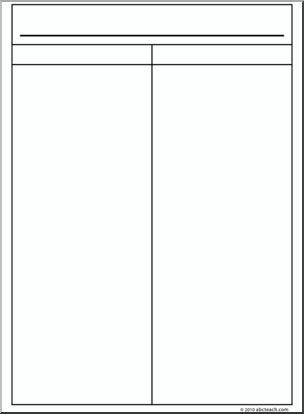A practical guide to making big career decisions.

Originally posted on Medium.com
I am in sales. For some that sufficiently explains why my job sucks. I have a theory about how everyone sells every day of their lives, but that’s for another post.
Two days ago I quit my job.
I fought it for months. I hung in. I endured.
Now I know the teeth-gnashing and hand-wringing leading up to my decision were unnecessary.
After all, the signs were everywhere:
- Discontent
- Lack of Focus
- Boredom
- Dread
I held on too long because fear seeped into my psyche unchecked and slow-boiled until it exploded into a full-blown crisis of confidence.
We need the money, I thought.
I should be grateful for the work, I reasoned.
This doesn’t have to be you.
Tell me about your Sunday evenings.
Are you hyped for the week ahead or does dread start setting in at dinnertime? You know the feeling. Your circumstances are different than mine, but the generalized anxiety is the same.
I freaking hate my job, you think. Yet you stay. Why? It’s 2019. The job market is robust. Companies are scrambling to find good people. The gig economy is creating more entrepreneurs than ever before.
Forbes estimates that 57 million U.S. workers are participating in the gig economy.
Yet you stay.
Everyone’s experience is different, but common themes emerge in these moments of job stagnation.
I felt them all. I did not recognize them as signs at the time, but since this decision is in the rear view mirror I can clearly see how the motivation to quit was there all along.
Read on.
Sign #1: Sudden Impostor Syndrome
When things started going downhill, even the most routine tasks befuddled and bored me. Am I even qualified to do this, I thought?
Ask yourself:
Do you walk into your job and feel like you just don’t fit in?
Do you find that what once came easy is suddenly a struggle?
Is your confidence taking a hit?
Maybe the culture doesn’t value your contributions and abilities.
Look, you got the job for a reason. I highly doubt your capabilities are the issue.
Yet recently your work falls short. Someone always seems less than impressed or — worse — you think they are less than impressed. Or worst of all, you are less than impressed with yourself.
Maybe the culture no longer values your contributions. Maybe you no longer value the culture.
Sign #2: You Let Fear Decide
“I need the money.”
“It’s not that bad. I just need to do X and it will improve.”
“At least I’m not a [insert dirty job here].”
“Everyone else seems happy.”
The second your inner voice starts streaming a constant ticker tape of excuses, that’s a sign that you’re settling and fear is probably the culprit.
There’s a time and place to settle, for sure.
For example, let’s say you’re a felon recently out on parole. You hate your job as a [insert dirty job here], but because you’re a felon your choices are limited. Best to suck it up, put your head down and work.

Are you a felon? I’m going with no. If that’s the case, why are you settling? The answer to this question is not the justifications above. Instead, it’s the underlying reason behind those justifications.
This is tongue-in-cheek, but aren’t you actually in a prison of sorts when you give in to your unhappiness?
Quora is riddled with questions like this one from desperate ‘inmates’ looking to escape their self-imposed prisons:
This breaks my heart because I know the feeling.
Why I Stuck Around
Back to my situation. I mentioned our financial obligations. This was 100% the reason for sticking around. If I am being honest, it isn’t the financial obligations themselves, but my fear of not meeting them.
I am excellent at envisioning vivid worst-case scenarios.

If I quit my job then the bills will not get paid, our properties will go into foreclosure and the dogs won’t eat.
Oh, and I’ll never ever find another job.
I believed this because the narrative was streaming through my mind all the time. I convinced myself it was incredibly irresponsible to quit.
Are your justifications masking irrational fear?
Sign #3: You Google Articles About Bad Bosses
Or bad jobs. Or job dissatisfaction (NOTE: a leading indicator of job dissatisfaction is feeling like you’re ‘in jail’). Whatever the keywords, you’re looking for company in your misery. You start reading blogs and case studies and stories of people that found their passion.
It almost becomes a second job. Trust me, I did this.
The author Travis Bradberry is active on LinkedIn and for a while I read everything he posted. The content was relevant to my situation.
I think Travis knew I should quit before I did.
If you’re googling for career advice, it’s time to reevaluate your career.
This is an important stage on your path to realization. Reading others’ storiesreminds us that we will come out the other side unscathed and sometimes even better than before.
I’m a big believer in reading for comfort, but this will get out of control if you let it.
By all means, gather information. Build up your awareness muscle and use the information to take action, but don’t get stuck here. Eventually the articles all sound the same and you will stagnante here in this information stage.
Let me save you some time. If you’re googling for career advice, it’s time to reevaluate your career.
Spend the time sprucing up your resume and polishing your LinkedIn profileinstead.
Sign #4: You’re Jealous of Others’ Careers
Look, this isn’t easy to admit. I am often envious of others when my confidence dips.
My career path is ambiguous. I don’t specialize in any one industry and because many great job opportunities require specific industry experience, I’m often not the best candidate.
I’m not married to any one product or service.
I’m just good at sales.
It’s hard not to envy the software developers and nurses and architects. They can effortlessly match their skills to a role. I can’t.
Career paths are easier when they’re more predictably laid out. My path zigs and zags, and job changes are more difficult. How to convince the SaaS software company that my background selling plastics packaging will convey?
So yes, I’m jealous of others, but only sometimes.
My jealousy appears when I start to check out of my current job and slip into the job seeker mind space. As a professional worrier, the next train of thought is, who in the world is going to hire me?
If you’re suddenly noticing others’ careers and reacting with envy, don’t worry. It’s just your subconscious catching up your conscious mind to the fact that you’re not happy in your current position.
This awareness is a blessing because it will force you to take stock of what’s working and what isn’t. It may also prompt you to take the necessary steps to stabilize your path.
- Do you need some continuing education or a certificate of some kind?
- Perhaps you need to develop a complementary skill.
- Are you ignoring a skill set at which you excel? Something you can capitalize on (i.e. maybe your writing skills are exceptional but are currently only part of your job description. Pull that thread — see where it leads).
These moments of career crisis can ignite our growth if we can recognize them and act on them.
Sign #5: You Cringe When People Ask What You Do
Are you proud of your job? No? That’s OK. I wasn’t too proud of mine either.
Since we are a society that defines individuals by what they do more than who they are (sigh), the question “what do you do?” probably comes up every time you meet someone new.
Whether it’s the job itself, the company or the stage of your career, something isn’t right if this question is anxiety-producing or somehow triggers shame or embarrassment.
This question instantly made me feel boring.
The truth is, I wasn’t excited about what I did. It didn’t energize me so I didn’t enjoy talking about it.
Talk about red flags.
If this is you, it might be the most glaring sign of all. We spend over half our lives working. If such a large chunk of who you are falls short of who you want to be, you have no choice but to change.

Think of it this way: imagine you’re an astronaut.
Everyone thinks astronauts are cool.
It’s a win-win situation if you love being an astronaut because it will always be enjoyable to share the details of what you do.
But what if you’re a mid-level manager at a software company?
Well, if you love your job, you will engage and entertain others whenever you share what you do because you have passion and you’re happy.
You’re basically an astronaut disguised as a software manager.
Does that make sense?
Pulling It All Together
There are always reasons to stay in a job you hate.
My question to you is, at what price?
If any or all of these signs are present in your mind today, I urge you to take action. If not, the days will turn into weeks, the weeks will turn into months, and suddenly years have passed and you’re still hanging on by your fingernails.
- You’ll be out of gas.
- You’ll be resigned.
- You’ll stay stuck.
What does action look like? Try these:

- Update your resume and post it everywhere. Publish it on Monster, Indeed, Glassdoor, The Ladders and LinkedIn. Then dive deeper. Find professional organizations and groups in your industry and post it there;
- Work your network. Hopefully you use LinkedIn to stay connected and updated on what’s happening in your areas of professional interest. If not, this is a great time to build your network and follow people and companies that interest you. Set your LinkedIn job settings to “actively looking” — don’t worry, your current employer won’t know;
- Use this time to take stock of your career path. Is your job the problem or does your discontent stem from a mismatch of your skills/passion and current career? Be honest with yourself. You want your next move to be the right one. Take the time to dive deep here. Not sure what you want to do? Try this and this.
- Not 100% sure if you should quit? Write out an old-fashioned T-chart. Pros and cons. Which list is longer? Do that.
Quitting your job is often the best next step to reaching your goals. If you’re unhappy or unfulfilled but feel stuck, you owe it to yourself to investigate why. The answer will inform your next move.
Be brave and be true to yourself. Always.


